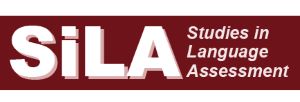Seeing the positives in assessment. Contributing to a “literature of doing” school-based Aboriginal language revival programs
Jasmine Seymour & Denise Angelo, Australian National University
|
https://doi.org/10.58379/QFYY5151
|
Volume 12, Issue 2, 2023
|
Abstract: In this paper, the authors, Seymour, an Aboriginal language teacher and researcher of Dharug, the Sydney language, and Angelo, a non-Indigenous Aboriginal language teacher educator, explore the present context of “doing assessment” in Aboriginal language revival programs in New South Wales schools. Language assessment is a critical but very ordinary part of planning for teaching and learning, giving feedback to students and reporting to parents. Plus, assessment is required if students are to receive academic credit for their learning. Indeed, assessment is involved in many potential future developments and pathways for Aboriginal language revival programs. Yet, there is a paucity of language assessment guidance available through the generic (not language-specific) state and national Aboriginal language curriculum documents and the scarce professional training opportunities for Aboriginal language teachers. Additionally, there is potential unease amongst some Aboriginal community members. To address this situation, the authors recommend accessible information and tangible examples about assessing the language taught in class be made available to Aboriginal communities. The authors also propose a bank of language assessment tasks suitable for adaptation, a process they illustrate via two sample tasks, as well as an institutional commitment to support the development of language specific scope and sequence documents with associated assessment items where communities wish to move to a more formal language program.
Key words: Aboriginal language teaching and assessment, Aboriginal language curriculum, Indigenous language revival in schools, Indigenous language education policy, Dharug language
